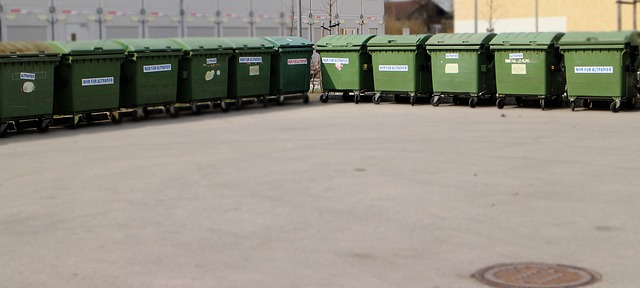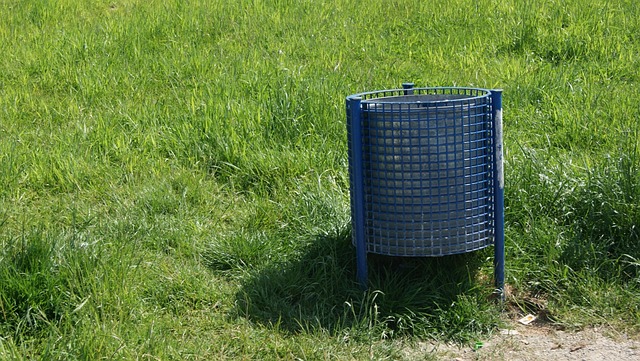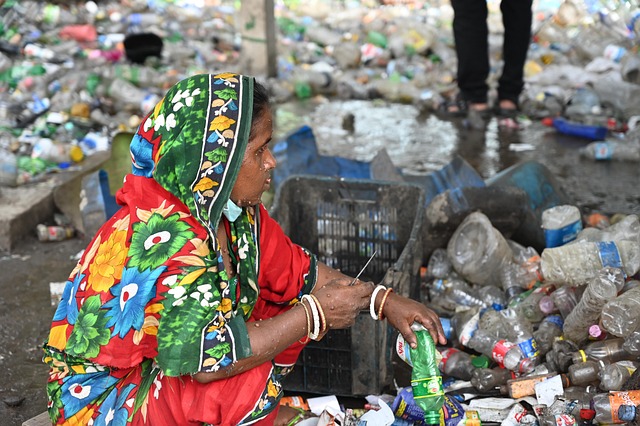Homeowners in Arvada facing garbage disposal issues should consider professional installation servic…….
Category: Garbage Disposal Installation Services Arvada
Garbage Disposal Installation Services Arvada: A Comprehensive Overview
Introduction
In the ever-evolving landscape of urban sanitation, efficient waste management systems play a pivotal role in shaping sustainable communities. At the forefront of these systems is the garbage disposal installation service, a critical component in maintaining hygienic and environmentally conscious cities. This article delves into the intricacies of ‘Garbage Disposal Installation Services Arvada’, exploring its definition, global impact, technological innovations, regulatory framework, and future potential. By examining these aspects, we aim to provide a comprehensive understanding of this essential service and its role in shaping the urban environment.
Understanding Garbage Disposal Installation Services Arvada
Definition and Core Components
‘Garbage Disposal Installation Services Arvada’ refers to the specialized process of designing, implementing, and maintaining efficient garbage disposal systems within residential, commercial, and industrial properties located in the city of Arvada, Colorado. These services encompass a range of activities:
- System Assessment: Experts evaluate existing waste management infrastructure and identify areas for improvement.
- Customized Solutions: Tailored plans are developed to meet specific client needs, considering factors like space constraints, budget, and environmental goals.
- Installation: Skilled technicians install garbage disposals, ensuring proper connections to plumbing systems and electrical supplies.
- Maintenance and Repairs: Ongoing support includes regular check-ups, parts replacement, and troubleshooting to guarantee optimal performance.
- Environmental Compliance: Services adhere to local, state, and federal regulations related to waste disposal and environmental protection.
Historical Context and Significance
The concept of garbage disposal systems dates back to the early 20th century when urban populations grew exponentially, leading to increased waste generation. Traditional methods of waste collection became inadequate, prompting the development of more efficient solutions. Over time, these systems evolved from basic mechanical processes to modern, advanced technologies.
In Arvada, as in many cities worldwide, garbage disposal installation services have transformed from niche offerings to essential components of urban infrastructure. They contribute significantly to:
- Sanitation: By grinding food waste and other organic materials into fine particles, these systems prevent the buildup of odors, flies, and rodents, enhancing overall hygiene.
- Environmental Conservation: Efficient waste processing reduces the volume of waste sent to landfills, conserving natural resources and minimizing environmental pollution.
- Space Utilization: Compact garbage disposal units save valuable space in homes and commercial kitchens, allowing for more efficient use of limited real estate.
- Cost Efficiency: Over time, these systems can lead to cost savings by reducing the frequency of trash collection and minimizing the need for separate organic waste management programs.
Global Impact and Trends
International Influence
‘Garbage Disposal Installation Services’ have left an indelible mark on cities worldwide, with varying levels of adoption and integration into municipal waste management strategies. Key influences include:
- European Union: Strict environmental policies in the EU have driven the widespread use of advanced garbage disposal systems, particularly in Germany and the Netherlands, known for their efficient recycling programs.
- Asia Pacific: Rapid urbanization in countries like China and Japan has led to innovative waste management solutions, including high-tech garbage disposals integrated into modern buildings.
- North America: The United States and Canada have seen a steady growth in garbage disposal installations, especially in regions with stringent environmental regulations.
Regional Trends Shaping the Future
| Region | Trend/Influence | Impact |
|---|---|---|
| North America | Increasing focus on sustainable building practices | Integrating efficient garbage disposals into new constructions to reduce environmental impact |
| Europe | Stricter waste separation laws | Encouraging the adoption of multi-stream garbage disposal systems for better recycling |
| Asia Pacific | Urbanization and limited landfill space | Rapid development of compact, high-capacity garbage disposal units |
| Latin America | Government initiatives for clean energy | Promotion of organic waste conversion technologies for energy production |
| Middle East | Water scarcity concerns | Adoption of water recovery systems integrated with garbage disposals |
Economic Considerations
Market Dynamics and Investment Patterns
The global garbage disposal installation services market is experiencing steady growth, driven by several factors:
- Urbanization: Rapid city expansion in developing nations increases the demand for efficient waste management solutions.
- Environmental Awareness: Growing public consciousness about environmental issues fosters a preference for sustainable practices.
- Government Initiatives: Many governments are investing in green infrastructure, including modern garbage disposal systems.
Economic Benefits and Challenges
Benefits:
- Cost Savings: Over time, these services can reduce operational costs for property owners and municipalities by minimizing the need for frequent waste collection and landfill fees.
- Revenue Generation: Installation and maintenance services provide a steady revenue stream for specialized contractors.
- Job Creation: The industry supports employment opportunities in installation, maintenance, and related support roles.
Challenges:
- Initial Investment: High upfront costs for advanced garbage disposal systems can be a barrier for property owners, especially in low-income areas.
- Infrastructure Upgrades: Implementing new systems may require substantial investments in existing plumbing and electrical infrastructure.
- Competitive Market: The market is becoming increasingly competitive, putting pressure on service providers to offer innovative solutions and efficient pricing.
Technological Advancements
Innovations Shaping the Industry
Technological progress has been a catalyst for innovation in garbage disposal installation services:
- Smart Disposals: Internet of Things (IoT) enabled garbage disposals can monitor waste generation, optimize collection routes, and provide real-time data for efficient management.
- Biogas Conversion: Advanced organic waste processing technologies convert food scraps into biogas, a renewable energy source, reducing environmental impact.
- Autonomous Collection Vehicles: Self-driving vehicles equipped with advanced sensors and garbage disposal systems promise more efficient and cost-effective waste collection processes.
- Material Recovery Systems: These systems use magnetic separation and optical sorting to recover valuable materials from waste streams, enhancing recycling efforts.
Impact and Future Potential
Current Impact:
- Improved sanitation and hygiene in residential and commercial settings.
- Reduced environmental footprint through efficient organic waste processing.
- Enhanced resource recovery, leading to more sustainable waste management practices.
Future Prospects:
- Integration with Smart Cities: Garbage disposal systems will play a pivotal role in smart city initiatives by contributing real-time data for optimized waste management.
- Personalized Solutions: Customized technologies tailored to individual user needs and preferences will become the norm.
- Waste-to-Energy Systems: Advancements in technology will lead to more efficient conversion of organic waste into energy, reducing reliance on fossil fuels.
Policy and Regulation
Key Policies and Frameworks
The development and deployment of garbage disposal installation services are guided by a web of policies and regulations designed to ensure environmental protection, public health, and sustainable practices:
- Environmental Protection Agency (EPA) Regulations: In the United States, EPA guidelines set standards for waste management, including those related to water quality and pollution prevention.
- Local By-laws: Cities and municipalities enforce local laws regarding waste disposal, collection, and recycling, often requiring specific standards for garbage disposals.
- Building Codes: Construction regulations include provisions for efficient plumbing and waste management systems, ensuring proper installation of garbage disposals.
Influence on Industry Development
These policies have a profound impact on the industry:
- Standardization: Regulations promote the use of standardized components and designs, ensuring compatibility and safety.
- Environmental Compliance: Service providers must adhere to strict environmental standards, driving the adoption of advanced technologies.
- Licensing and Certification: Professional garbage disposal installers may require licensing or certification, ensuring qualified personnel handle installations.
- Research and Development Incentives: Governments often offer incentives for R&D in green technologies, fostering innovation in garbage disposal systems.
Challenges and Criticisms
Overcoming Obstacles
Despite its numerous benefits, the ‘Garbage Disposal Installation Services’ sector faces several challenges:
- Public Awareness and Education: Many property owners are unaware of the advantages and proper use of garbage disposals, hindering widespread adoption.
- Infrastructure Limitations: Older buildings may lack the necessary plumbing and electrical upgrades required for modern disposal systems.
- Cost Barriers: High initial costs deter some homeowners, especially in price-sensitive markets.
- Technical Complexities: Advanced technologies may require specialized knowledge for installation and maintenance, posing challenges for untrained personnel.
Proposed Solutions
- Public Awareness Campaigns: Educate communities about the benefits of garbage disposals through informative programs and workshops.
- Incentivized Upgrades: Governments can offer financial incentives or grants to encourage property owners to upgrade their plumbing systems for garbage disposal installation.
- Affordable Financing Options: Partner with financial institutions to provide low-interest loans or lease programs, making advanced garbage disposals more accessible.
- Training Programs: Develop specialized training initiatives to ensure qualified technicians install and maintain garbage disposal systems, enhancing safety and performance.
Case Studies: Successful Applications
1. Green Urban Development in Tokyo, Japan
Tokyo’s bustling metropolis embarked on a sustainable transformation by integrating advanced garbage disposal systems into newly constructed buildings. This initiative aimed to reduce the city’s massive waste footprint. The case study highlights several key aspects:
- Compact Disposal Units: High-rise apartment complexes installed compact, high-capacity garbage disposals, minimizing space utilization and maximizing efficiency.
- Organic Waste Recycling: Organic material from food scraps is converted into biogas, powering on-site facilities, and reducing the city’s carbon footprint.
- Public Awareness: A comprehensive education campaign raised awareness among residents about proper waste segregation and the benefits of garbage disposals, leading to higher adoption rates.
2. Efficient Waste Management in Copenhagen, Denmark
Copenhagen has become a global leader in sustainable urban development, with its innovative waste management system as a testament. The city’s approach includes:
- Smart Garbage Disposals: IoT-enabled disposals communicate waste levels and optimize collection routes, reducing fuel consumption and emissions.
- Material Recovery Facilities (MRFs): Advanced MRFs employ optical sorting and magnetic separation to recover valuable materials from mixed waste streams.
- Public-Private Partnerships: Collaborating with private garbage disposal companies has led to efficient system integration and cost savings for the city.
3. Community Engagement in San Francisco, USA
San Francisco’s innovative ‘Waste Not’ program is a prime example of community engagement in sustainable waste management. The project involved:
- Community Education: Workshops and events educated residents about food waste reduction and proper garbage disposal use.
- Organic Collection Programs: Dedicated organic waste collection services were introduced, encouraging composting and biogas production.
- Incentivized Recycling: Financial incentives were offered to property owners who installed efficient garbage disposals and implemented separate organic waste streams.
Future Prospects
Emerging Trends and Growth Areas
The future of ‘Garbage Disposal Installation Services’ is filled with promising possibilities:
- Smart Cities Integration: As cities embrace smart technology, garbage disposal systems will become integral components, enhancing urban efficiency and sustainability.
- Personalized Solutions for Individuals: Customized disposal units tailored to specific dietary habits and family sizes will gain popularity.
- Waste-to-Resource Conversion: Advanced technologies will enable the recovery of valuable materials from organic waste, fostering a circular economy.
- Remote Monitoring and Control: IoT advancements will allow users to monitor and control garbage disposals remotely, enhancing convenience and energy efficiency.
Strategic Considerations for Service Providers
- Stay Ahead of Regulations: Keep abreast of evolving policies and adapt service offerings accordingly to maintain compliance and market competitiveness.
- Invest in Technology: Embrace cutting-edge technologies to offer innovative solutions, ensuring long-term viability in a rapidly changing industry.
- Focus on Sustainability: Promote the environmental benefits of garbage disposals and develop eco-friendly practices within the company operations.
- Expand Service Reach: Explore opportunities in underserved markets and niche applications to diversify revenue streams.
Conclusion
‘Garbage Disposal Installation Services Arvada’ is a vital component of modern urban infrastructure, offering efficient waste management solutions with far-reaching environmental and economic impacts. From its historical evolution to cutting-edge technological advancements, this industry plays a critical role in shaping sustainable cities. By addressing challenges, learning from successful case studies, and staying abreast of emerging trends, service providers can navigate the future landscape, ensuring efficient garbage disposal systems contribute to healthier, more environmentally conscious communities.
FAQ Section
Q: Are garbage disposals cost-effective for homeowners?
A: Absolutely! While the initial investment may be higher than traditional methods, garbage disposals reduce long-term costs by minimizing frequent trash collection and potential landfill fees. Over time, they can lead to significant savings.
Q: How do garbage disposals help the environment?
A: Garbage disposals contribute to environmental conservation by grinding food waste into fine particles, preventing odor issues, fly breeding, and rodent attraction. They also reduce organic waste sent to landfills, minimizing environmental pollution and conserving natural resources.
Q: Can old plumbing systems accommodate garbage disposals?
A: It depends on the specific system. In many cases, simple upgrades or modifications can enable garbage disposal installation. However, older buildings with inadequate plumbing may require substantial renovations to meet modern standards.
Q: What are some advanced technologies in garbage disposal?
A: Modern garbage disposals incorporate IoT connectivity for remote monitoring and control, biogas conversion systems for energy production, and material recovery technologies for enhanced recycling capabilities.
Q: How can I choose the right garbage disposal for my home?
A: Consider factors like family size, dietary habits, budget, and space availability. Consult with professionals who can assess your needs and recommend tailored solutions based on your specific requirements.
Cost of Garbage Disposal Installation in Arvada: A Comprehensive Guide
Planning garbage disposal installation in Arvada involves $150-$600 costs, influenced by unit type,…….
Arvada Garbage Disposal Installation Services: Expert Solutions for All
Arvada residents and businesses have various garbage disposal options, from traditional to commercia…….
Fix or Replace: Garbage Disposal Installation Services Arvada
When repairing a broken garbage disposal in Arvada, weigh costs and benefits: consider warranty, age…….
Transform Your Kitchen with High-Quality Garbage Disposal Installation in Arvada
Arvada's garbage disposal installation services reflect modern kitchen upgrades, with professio…….
Arvada Trash Grinder Installation: Seamless Setup for Efficient Garbage Disposal
Arvada Trash Grinder Systems, featuring garbage disposal units and connected drain lines, offer effi…….
Arvada’s Top Garbage Disposal Installation Services Guide
Arvada's diverse properties demand tailored emergency garbage disposal solutions. Local install…….






